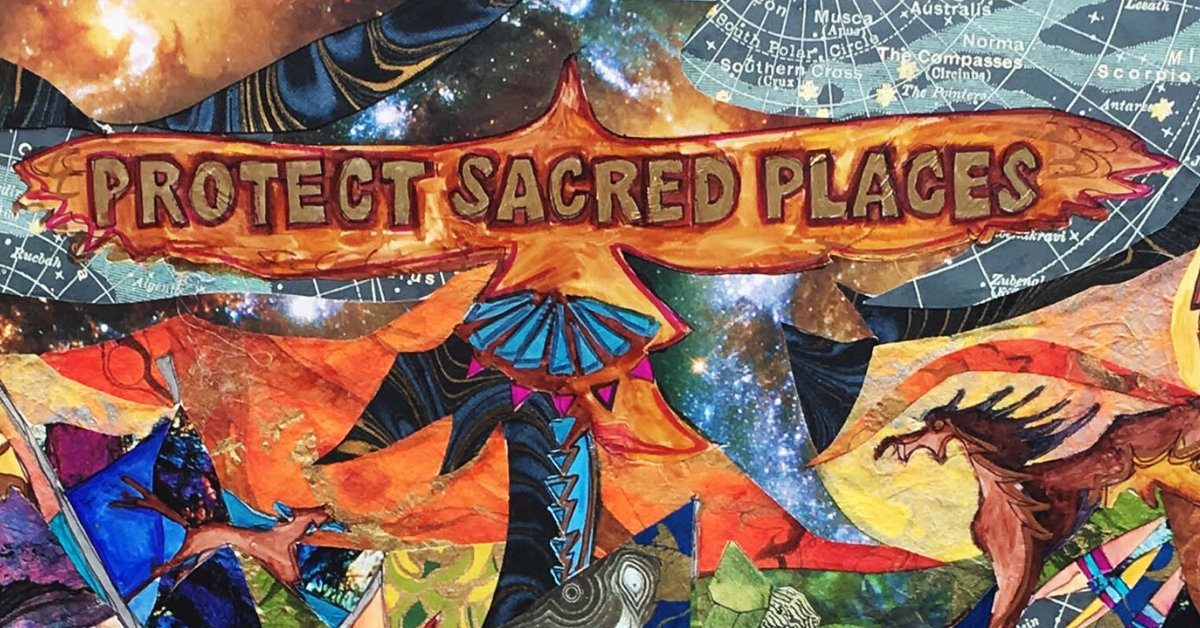
Extractivism is a short-sighted model of development seen around the world that exploits natural resources on a massive scale, creating significant economic profits for the powerful few in the short term, but too often resulting in minimal benefits for the communities where these resources are found. Instead, extractive industries contribute to serious social and environmental consequences, including the displacement of people from their homes and lands, human rights abuses against workers and local communities, air and water contamination, and deforestation and biodiversity loss. In many cases, they also contribute to climate change through the increased production of fossil fuels.
Extractive industries include:
- hydraulic fracturing for unconventional gas (known as “fracking”), coal and oil extraction, and gold, copper and ore mineral mining; and the surrounding infrastructure including roads, pipelines and storage facilities
- large-scale single-crop or cash-crop plantations (i.e.-palm, soy) that do not support or feed surrounding communities
- Projects that take critical water sources from communities and ecosystems, such as hydroelectric dams and commercial water bottling operations
- corporate- and profit-driven renewable energy and climate mitigation projects carried out at the expense of rights of indigenous peoples and local communities
Human Rights & Ecology Impacts of Extractivism
- Abuses of the rights to life, health, land, food, and water; to work and to housing; to freedom of assembly, access to information and to a cultural life; and to non-discrimination
- Violation of indigenous people’s rights, treaty rights and sovereignty, including desecration of sacred sites.
- Failure to implement a meaningful consultation and consent process with affected communities
- Redistribution of wealth in favor of developed countries, transnational corporations, shareholders and country elites at the expense of the common good and local communities
- Weakened democratic governance and control
- Criminalization of human rights and environmental defenders and repression of protests, including using the legal system to protect corporations over local communities
- Use of military and security forces to protect natural resources and corporate interests, which has led to the assassination of human rights and environmental defenders
- Gender-based violence and discrimination against women, including economic injustice and rape by police, security and paramilitary forces
A Faith-Based Approach
Many religious leaders join indigenous peoples, farmers, women, mining-affected communities and human rights defenders in responding to this destructive force that is too often offered as a false solution to grinding poverty. They insist that we must instead work toward a new way of producing and consuming that acts in harmony with nature, prioritizes the dignity of the excluded, and is just and sustainable; and that is oriented in service of life over death, generosity over exploitation, and the common good over profit.
We need to question the current definition of a healthy economy and how we measure progress (Gross Domestic Product over the common good) that is based on outdated notions that growth is unlimited and compatible with the unrestrained use of natural resources. Governments are instead urged to fulfill their duties to protect and respect human rights and, particularly, indigenous rights. Furthermore, they are challenged to invest in and develop local and diversified sustainable economies, where people and creation can both benefit and use sustainably the commons, and where women, in particular, can experience gender, environmental, and development justice.
What We Can Do
As communities of faith we can stand in solidarity with affected communities who are raising their voices around the world in the face of the social, environmental and economic impacts of extractive industries.
Examine Our Lifestyles
- Pray and read about your spiritual tradition’s teachings on respect for nature and the interconnectedness of all things and/or the fullest dimensions of caring for creation
- Learn more about the experiences of people and communities impacted by extractive industries through reading and personal encounters
- Consider how you can minimize your dependence on the extractivist model and throwaway culture, i.e. not buying bottled water and reducing your driving and use of gas.
- Purchase ethically sourced and fair trade products and recycled-metal jewelry
- Encourage manufacturers of your phone, laptop and other devices to address exploitation in their supply chains
Change Systems
- Determine whether development projects in your community pass the rights-based litmus test (http://tiny.cc/UNMWG_litmus) created by the Mining Working Group at the United Nations
- Follow solidarity networks that are educating on and responding to the negative social, environmental and economic impacts of extractivism on indigenous peoples, people of color, local communities, women, the environment, and climate
- Research and get involved with a local or state organization in your area challenging local or regional extractivist projects and proposing sustainable alternatives
- Contact your denomination or religious organization to learn how it is responding to extractivist projects
-------
This resources was developed by the Inter-religious Working Group on Extractive Industries in Washington, DC.
